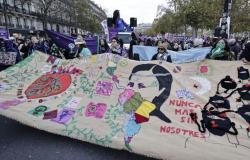We find the author on the shores of Lake Toba, caught in the midst of the stormy relations between a crooked oil palm producer and an environmental NGO trying to protect the villagers and local wildlife.
Will he find the inspiration he was looking for when leaving Paris? Will the sulphurous Lamia, sumptuous Greek, goddess in flesh and blood with a tragic destiny, be his new muse? And what are the intelligence services of Jakarta and Paris doing? The story goes from twist to twist, like the tiger Shere Khan who spies from the depths of the humid and captivating jungle.
Interview with Patrice Montagu-Williams
How do you know Indonesia?
I went to Indonesia for the first time on the island of Borneo, in Balikpapan when TOTAL was still carrying out oil exploration there. At the time, long before the Internet. By satellite, we sent a television news broadcast on videocassettes, sometimes using the diplomatic bag. Films were attached to it. This service was aimed at French people isolated on construction sites around the world, which allowed me to visit many countries, including Indonesia.
I also visited Bali obviously, like everyone else. But above all, I have a big crush on Java; this island is little known by tourists and that is a shame because it is magnificent. My intensive research on Sumatra and Indonesia in general was very useful to me in the writing of this novel, under the benevolent eye of Elizabeth D. Inandiak with whom I share the same publisher, Nevicata, for the collection The Soul peoples
for the book I wrote about Brazil, a country where I lived for 5 years.
Patrice Montagu-Williams
How did you get into writing?
I have always loved writing. I could have become a journalist but ultimately I studied business. After a busy professional life and many business trips abroad, I really took up my pen when I began my retirement in Athens, where I have lived ever since. My first novel was published in 2012, the first in a series of 5 thrillers which take place in Montmartre, a bit like Boris Vian.
I wrote others. Perhaps readers in Southeast Asia will be interested in my collection of short stories set in Bangkok: The Girl Who Loved Clouds (Gope Editions 2022), which I originally published as a serial for the French-speaking newspaper in Thailand Gavroche.
Your novel cites more than 40 writers, poets and philosophers. Who are your favorite authors?
Without hesitation, Garcia-Marquez and Simenon. And Balzac of course. But for me, the greatest is Dostoyevsky: I spent a long time in front of his tomb at the Tikhvin cemetery, during a visit to St Petersburg, years ago…
As I mention in the preface to The Tiger of Sumatra, for me there are two kinds of authors: those who write and those who tell stories; these are the novelists. I clearly fall into the second category.






